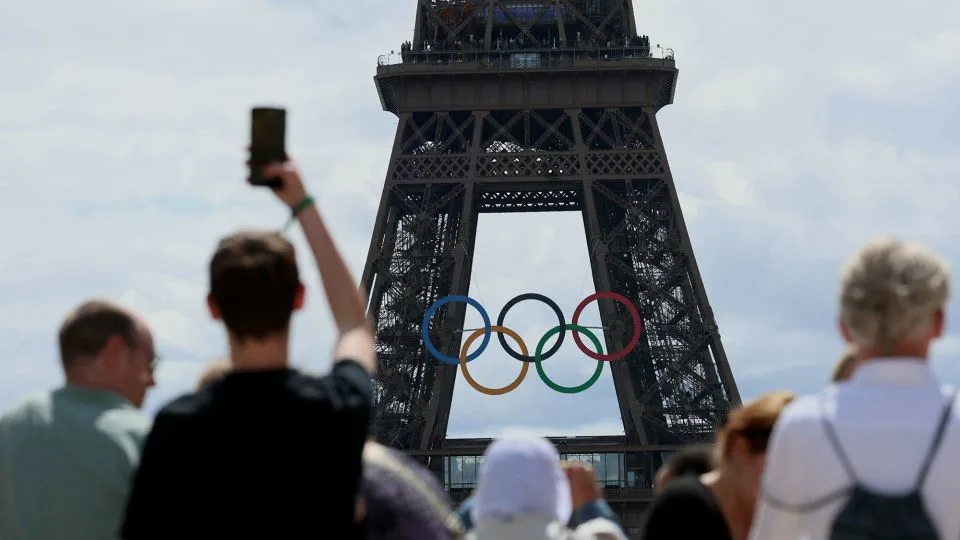The director of an international sports advocacy group has issued a cautionary statement to Olympic Games organizers ahead of the upcoming pool competitions: the doping controversy that has recently tarnished the sport is far from resolved.
In April, the New York Times revealed that 23 Chinese swimmers had tested positive for the same banned substance prior to the Tokyo Olympics, yet were still permitted to compete in the 2021 games. This revelation has stirred ongoing resentment and frustration within the swimming community. Eleven of those Chinese swimmers are slated to compete again in Paris, and many of their competitors are bracing themselves to face them with a sense of bitter resignation.
Rob Koehler, the director of Global Athlete, an international sports advocacy group, expressed to CNN their apprehension about the situation.
“If any of those 11 Chinese swimmers make it to the podium,” he stated, “the reaction will be one of absolute outrage.”
Several months before the Tokyo Olympics in 2021, Chinese swimmers tested positive for the banned performance-enhancing drug Trimetazidine during a national competition. However, China’s Anti-Doping Agency (CHINADA) reported that the concentration of the drug was “extremely low” and determined that the swimmers were not at fault because the substance had been inadvertently consumed through contaminated food.
The World Anti-Doping Agency (WADA) was informed of the test results a month before the Olympics and concurred with CHINADA’s findings. WADA’s President, Witold Bańka, stated that there was “no credible way to disprove the contamination theory accepted by CHINADA.”
CNN has reached out to CHINADA for comment on this matter.
In a statement, WADA reaffirmed its previous decision and noted that an independent prosecutor had verified that its conclusions were reasonable.
“WADA is consulting with external legal counsel to explore potential actions against individuals who persist in making false and defamatory claims. These unfounded allegations have significantly tarnished WADA’s reputation and eroded the confidence and trust of athletes and other key stakeholders in the Agency and the global anti-doping system,” the statement declared.
Three years have passed since the initial failed drug tests, and three months since the wider swimming community was informed, yet the scandal continues to escalate. On July 9, the US Anti-Doping Agency (USADA) issued a harshly critical statement regarding the mishandling of the incident. The statement raised serious questions about how the banned substance ended up in the kitchen where the swimmers’ food was prepared and why WADA so readily accepted the explanation provided by Chinese authorities.
USADA CEO Travis Tygart remarked, “Our objective from the outset has been to uncover the truth and facts of this situation for the benefit of clean athletes. Unless WADA leadership aligns with this goal and ceases its hostile rhetoric towards dissenting voices, trust in the global anti-doping system will remain elusive. WADA’s credibility is visibly deteriorating on the world stage.”
The US Justice Department is now investigating the case, with the authority to criminally prosecute individuals who assist athletes in doping at international competitions, regardless of whether these events took place within the United States.
Observing the situation closely is retired American swimmer Michael Phelps, the most decorated Olympian in history.
Seven years ago, Phelps, a 23-time gold medalist, expressed his frustration before Congress over the mishandling of the widespread Russian doping scandal. He returned to Congress in June to reiterate that no significant changes have been made since.
“As I sit here once again, it is evident that any attempts at reform within WADA have been inadequate,” he stated. “There are still deeply rooted, systemic issues that undermine the integrity of international sports and compromise athletes’ right to fair competition.”
Another American swimmer, Allison Schmitt, also provided her testimony. She competed in the 800-meter freestyle relay, where her team narrowly finished second to the Chinese.
“We raced hard. We trained hard,” she remarked. “We adhered to every protocol and accepted our defeat with grace. However, many of us will be haunted by this podium finish, which may have been influenced by doping.”
Swimmers heading to Paris feel that they can no longer rely on authorities to safeguard the integrity of the sport and are beginning to take matters into their own hands.
In a meeting with a group of swimmers and their coaches leading up to the Games, Koehler described the prevailing mood as one of concern, confusion, and anger.
He stated that athletes feel neglected by World Aquatics and the World Anti-Doping Agency, and that the issue is not receiving attention from those outside the sport. Although none of the swimmers want to comment publicly before the Games, Koehler believes they will protest if any of the 11 Chinese athletes win a medal.
Considering the International Olympic Committee’s strict prohibition on podium dissent, the nature of any Olympic protest remains uncertain. World Aquatics enforces even tighter restrictions on protests, as seen when Australia’s Mack Horton refused to share the podium with China’s Sun Yang at the 2019 World Championships.
Representing these athletes, Global Athlete has announced plans to release the names of the implicated Chinese swimmers on the eve of the Games and before each affected event, asserting that both the athletes and the international aquatics community have been let down by the authorities.
“CHINADA never notified the athletes of a positive test result, essentially sweeping the issue under the rug,” Koehler explained. “The athletes were neither provisionally suspended nor given an opportunity to explain themselves. Essentially, China’s Secret Service conducted their own investigations, raising significant suspicions. World Aquatics and the World Anti-Doping Agency failed to enforce the rules properly.”
Koehler suggests that the Chinese athletes were either unwitting victims of a state-sponsored doping scheme or participants in an “explicit arrangement involving a clandestine deal to shield athletes from a powerful nation.”
Regardless of the scenario, he emphasizes the importance of revealing the names of these swimmers: “They are participating in the Games under a cloud of suspicion.”
For more CNN news and to subscribe to newsletters, create an account at CNN.com.
